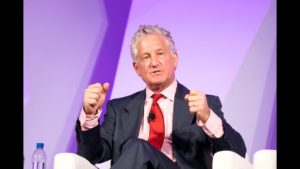 |
| Harry Broadman |
US-News:
"Modern companies have different vertical suppliers around the world. It could be the input that's not being produced in China – because of the disease – isn't making its way to a factory in Thailand, which then goes to Brazil and then comes to the U.S.," Broadman says.
Almost nine years ago to the day, Japan's Fukushima region was hit by a magnitude 9.0-earthquake and subsequent tsunami. Not only did the natural disaster cause three nuclear meltdowns at a nuclear power plant, it effectively took offline production facilities that reportedly produced 22% of all 300-millimeter silicon wafers, a vital component in semiconductors, globally.
On top of that, as much as 60% of certain necessary auto parts were made in Fukushima.
Although the coronavirus is a different beast entirely, it is an ugly surprise from Mother Nature forcing mainstays of the global economy to reexamine their risk tolerances and supply chain dependencies.
For Broadman, the fact that the coronavirus isn't just hitting some concentrated region is what makes it such a dynamic threat.
"The coronavirus is something that knows no borders and is far more diversified than any supply chain. That's why you're seeing pretty pronounced effects reverberating," he says.
Still, there's a lesson or two here. Even if they rhyme with the lessons presumably learned from Fukushima.
"One of the lessons is that there probably needs to be more attention paid to either redundancies or alternative suppliers should a particular supplier not be available," Broadman says.
"There's always a reaction to say, 'OK, we've learned from this.' Companies will learn, just as consumers will learn, to stockpile things if all of a sudden they're frightened because they couldn't find something. The question is: What's the half-life of that fear factor?" Broadman says.
In a way, one central question for supply chain dynamics moving forward seems to be greed versus safety. Stockpiling, redundant suppliers – these prophylactic measures cost money, Broadman says....
Broadman ... commented on a certain inertia in global supply chain practices. China's scale, combined with its foothold in capital intensive businesses that are time-consuming and expensive to relocate, give the country some enviable competitive advantages.
Harry Broadman is a speaker at the China Speakers Bureau. Do you need him at your meeting or conference? Do get in touch or fill in our speakers' request form.
Are you looking for more experts to manage your China risk? Do check out this list.